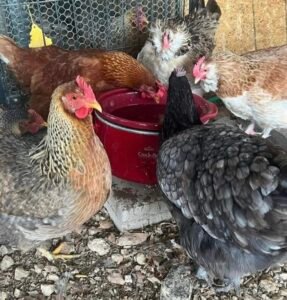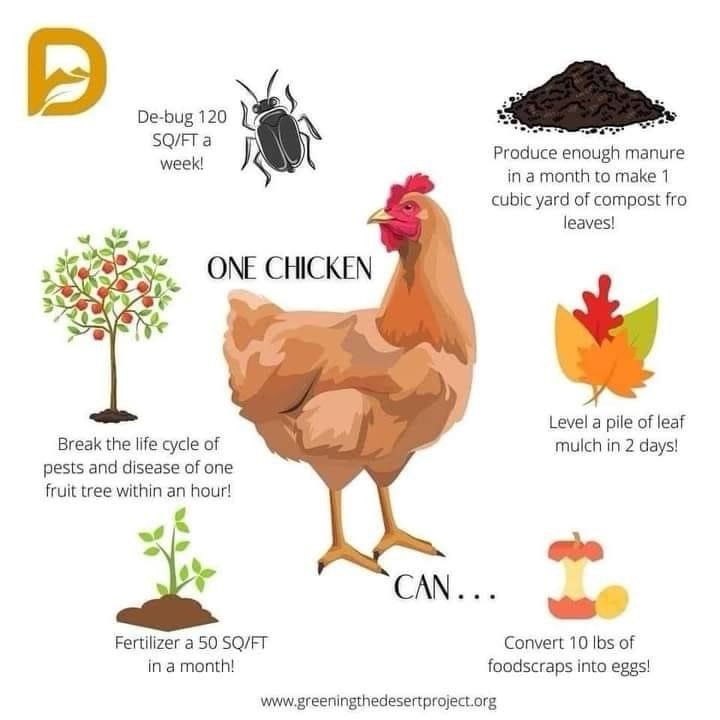
The Multifaceted Benefits of Raising Chickens
In the pursuit of a greener, more sustainable lifestyle, many homesteaders and garden enthusiasts are turning to an age-old solution with remarkable benefits—raising chickens. These feathered friends are not merely egg producers; they play a crucial role in enhancing the ecosystem of any home or farm. From natural pest control to organic waste management and soil fertilization, chickens can transform everyday environmental challenges into fruitful opportunities.
Chickens are more than just livestock; they are gardeners, waste disposers, and creators of rich compost. Their daily activities help to break down organic material, reduce garden pests, and maintain healthy soil conditions. By integrating chickens into your homestead, you embark on a journey towards a more productive and sustainable environment.
This article will explore how chickens contribute significantly to various aspects of home and farm management. We’ll look at their ability to control pests naturally, their efficiency in converting kitchen scraps into valuable eggs, and their role in producing nutrient-rich manure that greatly benefits garden soils. Whether you’re a seasoned farmer or a newcomer to backyard homesteading, understanding the broad spectrum of benefits provided by chickens will likely inspire you to make them a part of your ecological strategy. So, let’s delve into the remarkable world of chickens and discover how they can enhance your homestead’s ecosystem.
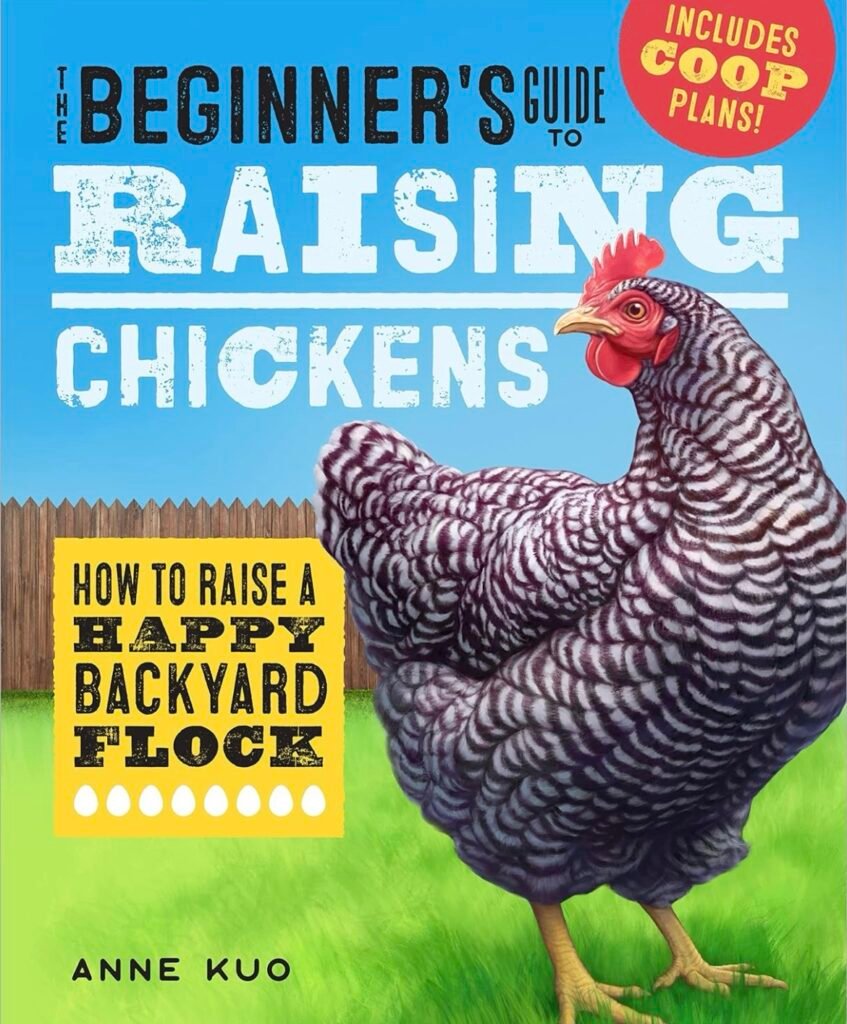
Natural Pest Control with Chickens
One of the most compelling reasons to welcome chickens into your garden is their incredible ability to control pests naturally. These diligent foragers are not just searching for their next meal; they’re also providing a crucial service by keeping harmful bugs and insects at bay. By integrating chickens into your homestead, you can significantly reduce your reliance on chemical pesticides, which benefits both your health and the environment.
How Chickens Help Reduce Garden Pests
Chickens are omnivores with a voracious appetite for many of the bugs and insects that plague gardens. As they scratch through the soil and mulch, they consume a wide range of pests including:
- Aphids
- Grubs
- Beetles
- Caterpillars
- Slugs
Their constant foraging helps disrupt the life cycle of these pests, preventing them from multiplying and causing damage to your plants. A single chicken can de-bug up to 120 square feet per week, making a small flock incredibly effective at maintaining pest control across a larger garden.
The Eco-Friendly Approach to Pest Management
By using chickens for pest control, you’re adopting an eco-friendly approach that avoids the hazards associated with synthetic pesticides. This method not only keeps your garden healthier but also promotes biodiversity by maintaining a balance in the natural ecosystem. Furthermore, the decreased chemical use helps preserve the quality of your soil and ensures that the food you grow is healthier and more nutritious.
Practical Considerations
To effectively use chickens for pest control, consider their housing and roaming needs:
- Rotational Grazing: Rotate where your chickens roam to ensure they effectively cover all areas of your garden without over-foraging any single spot.
- Fencing: Proper fencing is essential to keep chickens focused on the areas where they are most needed and to protect them from predators.
Integrating chickens into your garden for pest control not only helps reduce your chemical footprint but also enriches the soil as they forage, thanks to their natural droppings. In the next section, we will explore another incredible benefit of raising chickens: transforming kitchen waste into nutritious eggs.

From Kitchen Waste to Nutritious Eggs
Chickens not only contribute to pest control and soil enrichment, but they also play a pivotal role in recycling kitchen waste into a valuable resource: eggs. This natural process of converting leftovers into fresh eggs provides an excellent example of sustainable living, where nothing goes to waste.
Transforming Scraps into Eggs
Every day, households generate food scraps that typically end up in the trash or compost bins. However, by feeding these scraps to chickens, you can turn what would be waste into a nutritious food source. Chickens can eat a variety of kitchen scraps, including vegetable peels, fruit scraps, and grains. In return, they produce eggs, making this a perfect cycle of waste reduction and food production.
Here’s how the process works:
- Food Scraps as Feed: Chickens can consume about 10 pounds of food scraps, which can include leftovers from your kitchen that are still safe for consumption but perhaps not fresh enough for human tastes.
- Egg Production: These scraps are converted into energy that chickens use to lay eggs. This conversion not only reduces the amount of organic waste but also provides your household with fresh, home-grown eggs.
Nutritional and Environmental Benefits
The eggs produced by chickens fed on household scraps are often richer in nutrients compared to those from chickens raised on commercial feeds alone. They tend to have higher levels of omega-3 fatty acids and vitamins, depending on the types of scraps fed. Moreover, by reducing waste and converting it into eggs, you’re minimizing your carbon footprint and contributing to a more sustainable ecosystem.
Setting Up an Efficient System
To maximize the benefits of using chickens to recycle kitchen waste, consider the following setup:
- Feeding Station: Designate a specific area in your chicken coop or run where you can regularly deposit kitchen scraps. This helps in maintaining cleanliness and order.
- Balanced Diet: Ensure that kitchen scraps are supplemented with a balanced chicken feed to provide adequate nutrition. A quality feeder like the GUEOQTC-10 Pounds Chicken Feeder can help manage this by providing a constant supply of commercial feed alongside your kitchen scraps.
- Regular Health Checks: Monitor your chickens’ health regularly to ensure they are not only producing eggs efficiently but are also healthy and active. Healthy chickens are key to a successful kitchen waste recycling program.
By integrating chickens into your waste management routine, you not only gain fresh eggs but also contribute significantly to reducing household waste. This practice not only supports your sustainable living goals but also teaches valuable lessons about the interconnections of food production and waste reduction.
In the next section, we’ll explore how chicken manure can be transformed into gold for your garden, enhancing soil fertility and structure.
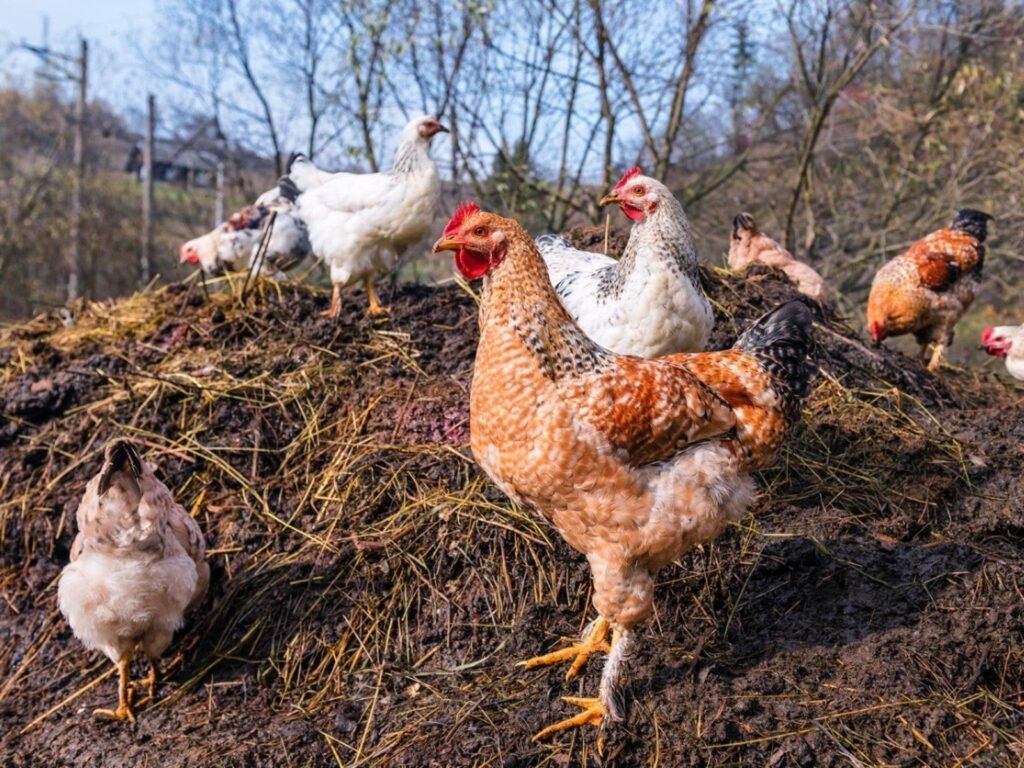
The Magic of Chicken Manure for Composting
Chicken manure is a potent addition to any compost pile, providing a rich source of nitrogen, phosphorus, and potassium—essential nutrients that help plants thrive. Harnessing the power of this natural fertilizer not only improves soil health but also supports a more sustainable approach to gardening by recycling waste into something incredibly valuable.
Benefits of Chicken Manure in Composting
Nutrient-Rich Composition: Chicken manure is considered one of the most beneficial animal manures for gardens due to its high nutrient content. It accelerates the composting process and enriches the soil, promoting robust plant growth and increased yields.
Improving Soil Structure: The addition of chicken manure to compost helps improve soil texture, enhancing its ability to retain water and nutrients. This is particularly beneficial for sandy soils which tend to have poor water retention and for clay soils which may be nutrient-rich but suffer from poor aeration.
How to Compost Chicken Manure Safely
While chicken manure is beneficial, it’s also potent and can harm plants if not used properly. Here’s how to compost it safely:
- Age Before Use: Fresh chicken manure is too strong for direct application as it can burn plants due to its high nitrogen content. Composting it for at least six months helps mellow the nutrients, making them safer and more beneficial for garden use.
- Correct Ratios: Combine chicken manure with carbon-rich materials such as leaves, straw, or wood chips in your compost bin. A good balance is crucial to prevent the compost from becoming too nitrogen-heavy, which can slow down the composting process and lead to unpleasant odors.
- Regular Turning: Turn your compost pile regularly to aerate it and help maintain an even decomposition process. This also helps to speed up the composting process and prevents the material from becoming anaerobic.
Practical Tools for Composting
To facilitate effective composting, consider investing in a robust compost bin that can accommodate a mix of kitchen waste, yard debris, and chicken manure. Additionally, tools like pitchforks or compost aerators can make the process easier and more efficient.
For those looking to integrate chicken manure into their gardening practices efficiently, utilizing a compost bin that allows for easy turning and aeration can make a significant difference. A practical, hands-on guide such as “The Beginner’s Guide to Raising Chickens: How to Raise a Happy Backyard Flock” can provide additional insights and tips on managing chicken waste alongside other aspects of raising chickens.
By effectively managing chicken manure, you not only enhance the fertility and health of your garden soil but also contribute to a cycle of sustainability that benefits your entire homestead ecosystem. In the next section, we’ll explore how direct interaction between chickens and your garden can further enrich the soil and support the growth of healthy plants.
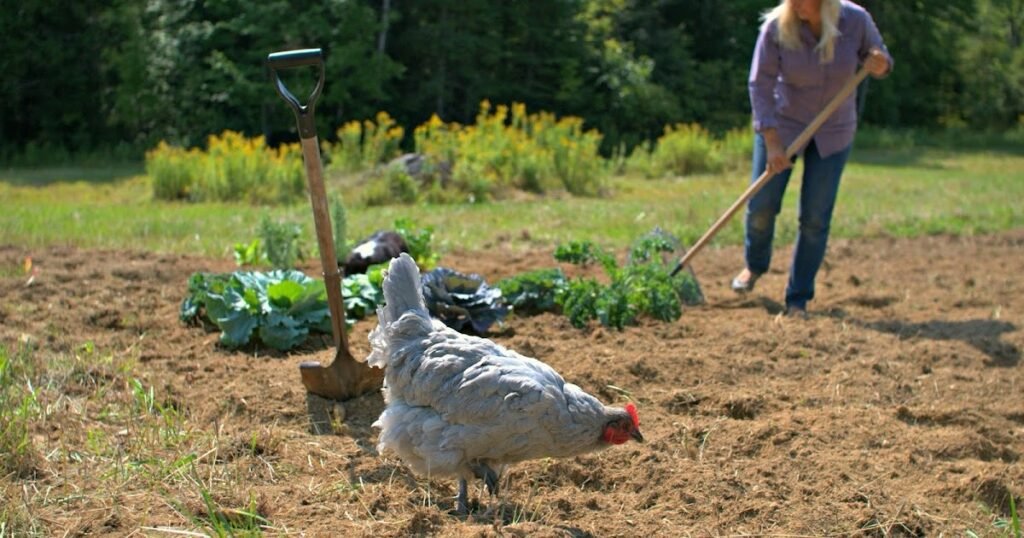
Direct Fertilization and Soil Health
Chickens not only contribute valuable compost to your garden but also directly engage with the soil in ways that further enhance its fertility and structure. Their natural behaviors, such as scratching and foraging, play a crucial role in maintaining healthy soil dynamics. Understanding and managing these behaviors can turn your flock into an active part of your garden’s ecosystem.
The Role of Chickens in Soil Fertilization
Chickens naturally fertilize the soil through their droppings, which are rich in nutrients essential for plant growth. Unlike synthetic fertilizers that might introduce harmful chemicals into your garden, chicken manure offers a natural, balanced mix of nitrogen, phosphorus, and potassium. When chickens are allowed to roam in a controlled area, they evenly distribute these nutrients across the soil, promoting uniform plant growth.
Soil Aeration and Weed Management
As chickens scratch the ground in search of bugs and food particles, they inadvertently aerate the soil. This aeration helps improve soil drainage and encourages the penetration of roots, which is vital for healthy plant development. Additionally, this scratching helps manage weeds by uprooting them before they have a chance to establish, reducing the need for manual weeding.
Integrating Chickens into Garden Areas
To harness these benefits effectively:
- Rotational Grazing: Implement a rotational grazing system where chickens are moved around different sections of the garden. This method ensures that all areas receive attention without any section becoming over-fertilized or compacted.
- Controlled Access: Use poultry fencing to control where and when chickens can access specific garden areas. This prevents damage to young, tender plants and keeps chickens focused on areas that need the most attention.
Protecting Sensitive Areas
While chickens are beneficial for soil health, they can be harmful to certain sensitive plants or newly seeded areas. Protect these zones with netting or temporary fencing until plants are robust enough to withstand occasional pecking and scratching.
Introducing tools like the Best Choice Products 71in Mobile Fir Wood Chicken Coop Hen House can provide an ideal solution for managing where your chickens fertilize and forage. This mobile coop allows you to easily relocate your chickens around your property, ensuring that all areas of your garden benefit from their natural behaviors without risking damage to delicate plants or over-fertilization.
By thoughtfully integrating chickens into your gardening strategy, you can enhance soil health, improve plant vitality, and create a more sustainable and productive garden. In the next section, we’ll offer practical tips for setting up and maintaining a chicken-friendly garden that maximizes these benefits while keeping your chickens happy and healthy.
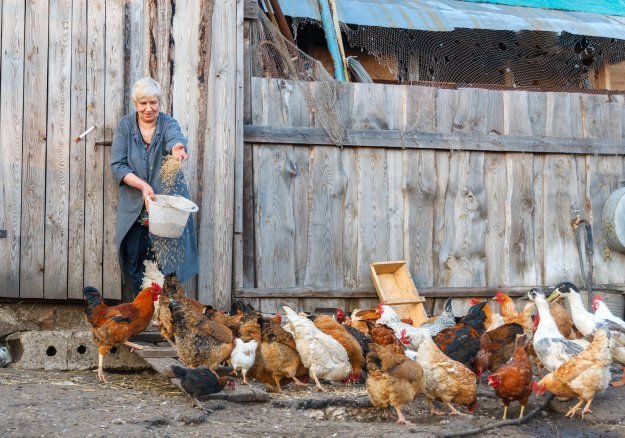
Practical Tips for Integrating Chickens into Your Homestead
Integrating chickens into your homestead or garden isn’t just about letting them roam freely; it requires thoughtful planning and management to ensure that both your chickens and your garden thrive. Here are some practical tips to help you set up a harmonious environment where your chickens can contribute effectively to your gardening and composting efforts.
Setting Up an Ideal Chicken Habitat
Choosing the Right Coop: A good chicken coop is essential for the health and safety of your chickens. It should provide protection from predators and harsh weather, enough space for all chickens to roost comfortably, and easy access for cleaning. Consider a mobile coop like the Best Choice Products 71in Mobile Fir Wood Chicken Coop Hen House, which allows you to move your chickens around your property easily. This mobility helps distribute the fertilization benefits and gives your chickens access to different foraging opportunities, which keeps them engaged and healthy.
Feeding Systems: To maintain the health of your chickens and ensure they’re getting a balanced diet, invest in a reliable feeding system. The GUEOQTC-10 Pounds Chicken Feeder is designed to keep feed dry and accessible while minimizing waste, which is essential for maintaining a clean and efficient feeding area.
Managing Chicken Health and Garden Safety
Regular Health Checks: Keep an eye on your chickens for any signs of illness or distress. Regular health checks help ensure that your flock remains healthy and capable of contributing to your homestead’s ecosystem.
Protecting Your Plants: While chickens are great for pest control and fertilization, they can also be a little too enthusiastic about scratching and pecking in garden beds. Use fencing or chicken wire to protect young plants, seedlings, or sensitive areas that you don’t want your chickens to disturb.
Enhancing Soil Management
Compost Integration: Use the compost generated from chicken manure to enrich your garden soil. This nutrient-rich compost not only improves soil structure but also increases its water retention capabilities and fertility, leading to healthier plants and more bountiful yields.
Rotational Grazing Practices: Implement a rotational grazing system to prevent overgrazing and ensure that all parts of your garden benefit from the chickens’ natural behaviors. This system helps avoid soil compaction and depletion of specific areas, promoting a healthier garden environment.
Educational Resources
To get the most out of raising chickens, continuous learning is key. Consider resources like “The Beginner’s Guide to Raising Chickens: How to Raise a Happy Backyard Flock”, which provides valuable insights into chicken care, behavior, and integration into your homestead. This guide can be an excellent resource for both beginners and experienced chicken keepers looking to refine their practices.
By following these tips and continuously adapting to the needs of both your chickens and your garden, you can create a productive and sustainable environment that benefits your entire homestead. Chickens not only bring joy and life to your outdoor space but also contribute significantly to your self-sufficiency goals.
A Sustainable Step Forward
Integrating chickens into your homestead or garden is more than just a step towards self-sufficiency—it’s a move towards a more sustainable and ecologically sound way of living. By welcoming chickens into your life, you’re not just gaining a source of fresh eggs and natural pest control; you’re also embracing a holistic approach to gardening and waste management that benefits your entire ecosystem.
Embracing the Full Cycle of Benefits
Chickens offer a unique set of advantages that extend far beyond the basics of egg production. Their ability to forage and control pests naturally reduces your need for chemical interventions, while their waste provides some of the richest natural fertilizer available. Furthermore, their activities help aerate and enrich the soil, making your garden more fertile and robust.
Building a Thriving Ecosystem
The integration of chickens into your homestead is a perfect example of how small-scale, thoughtful actions can lead to significant environmental benefits. As you adjust their roaming areas, manage their diet, and use their manure for compost, you are actively participating in a cycle of growth and sustainability that enhances your home’s productivity and ecological footprint.
Continuous Learning and Adaptation
The journey of raising chickens and integrating them into your homestead is continuous and ever-evolving. As you learn more about their care, behavior, and the benefits they bring, you can better tailor their environment and your gardening practices to meet your sustainability goals. Resources like “The Beginner’s Guide to Raising Chickens: How to Raise a Happy Backyard Flock” provide a great foundation for those looking to deepen their understanding and skills in chicken keeping.
Consider taking the first step today by evaluating how chickens can fit into your lifestyle and space. Whether it’s setting up a mobile coop like the Best Choice Products 71in Mobile Fir Wood Chicken Coop Hen House or starting small with a few chickens and a simple feeding system like the GUEOQTC-10 Pounds Chicken Feeder, every step counts. Embrace the opportunity to transform your homestead into a more productive, sustainable, and enjoyable space.
By fostering chickens, you’re not just caring for animals—you’re cultivating a lifestyle that respects and promotes the health of your environment. Let your chickens roam, peck, and play their way to a more sustainable future on your homestead.


